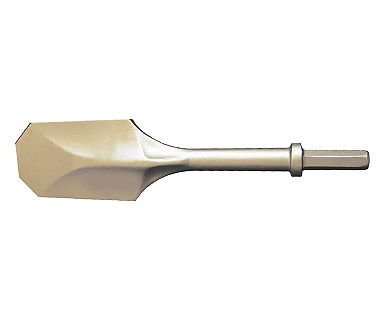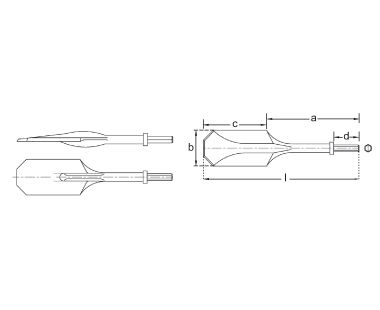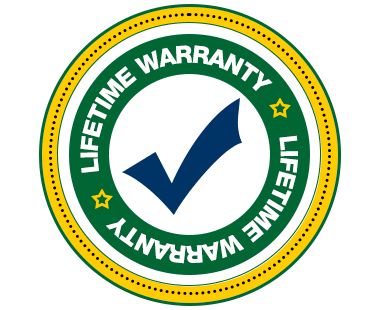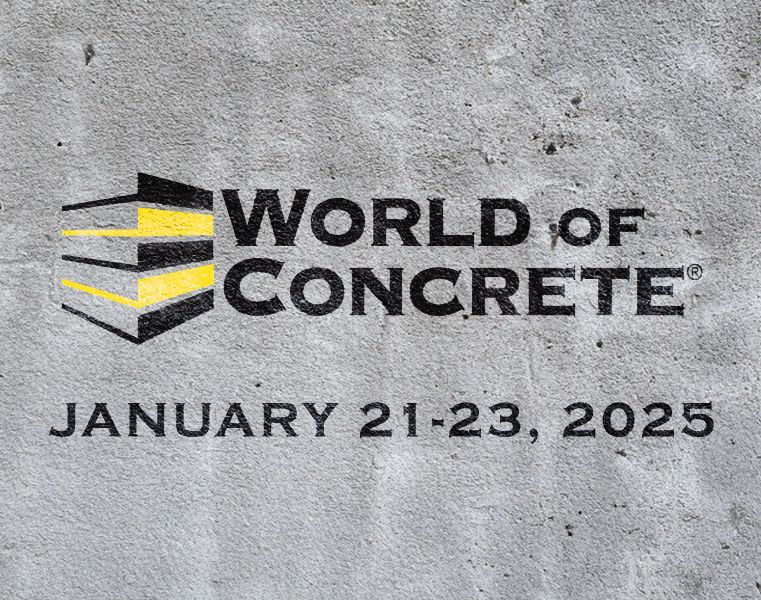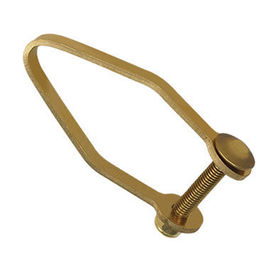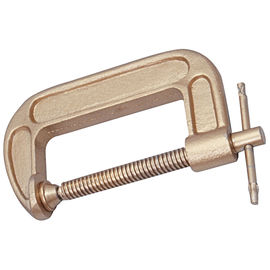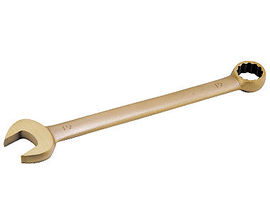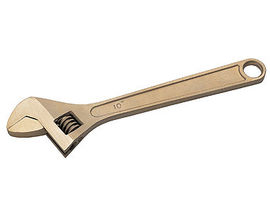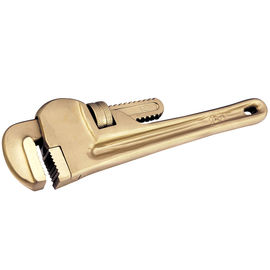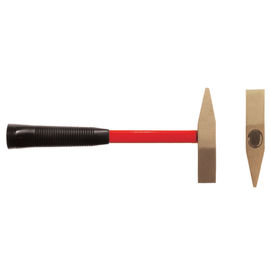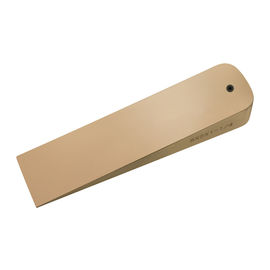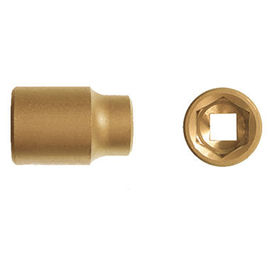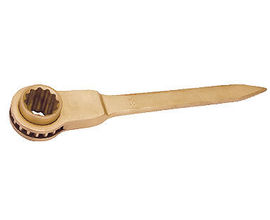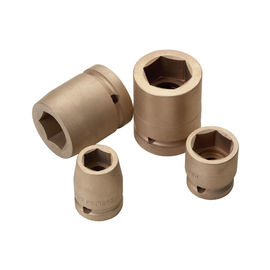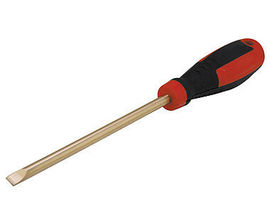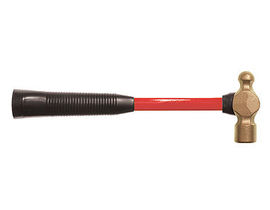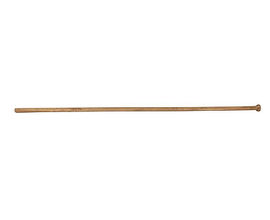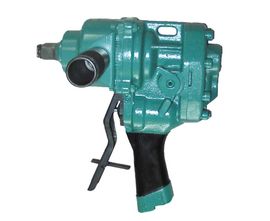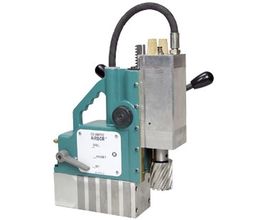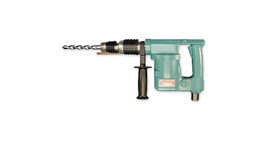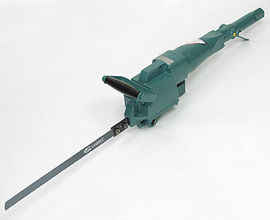Clay Spade Chisel
Ex340 Series
- Non-Sparking
- Non-Magnetic
- Corrosion Resistant
- ISO 9001:2015 certified production, TUV materials certified
- Lifetime Warranty
Applications:
- Non-sparking clay spade chisel for use in petrochemical, grain production (explosive-dust), utilities, and hazmat applications.
- Non-magnetic clay spade chisel for use in MRI/NMR, nuclear products, electronic manufacturing, and other sensitive equipment.
- Corrosion Resistant clay spade chisel for use in desalination plants, chemical/paper manufacturing, and shipyards.
- Standard Sizes
- ALLOYS & USE
| A = Aluminum Bronze | B = Copper Beryllium | |
|---|---|---|
| Example: | Ex340-100A | Ex340-100B |
| No. | Material | b inch | l inch | a inch | c inch | d inch | Wt. lbs. | b mm | l mm | Wt. kg | Shank |
|---|---|---|---|---|---|---|---|---|---|---|---|
| Ex340-100A | Aluminum Bronze | 4-1/2 | 16 | 11 | 5 | 4 | 9 | 114 | 406 | 4.08 | 7/8" Hex |
| Ex340-100B | Copper Beryllium | 4-1/2 | 16 | 11 | 5 | 4 | 9 | 114 | 406 | 4.08 | 7/8" Hex |
| Aluminum-Bronze (AlBr) Alloy | Copper-Beryllium (CuBe2) Alloy | |
|---|---|---|
| Zone Compatibility | Fulfill demand in ATEX Directive 1999/92/EC for work in Zones 0, 1, 2, 20, 21 and 22, M1 & M2 | Fulfill demand in ATEX Directive 1999/92/EC for work in Zones 0, 1, 2, 20, 21 and 22, M1 & M2 |
| Hardness | 27 HRC | 38 HRC |
| Durability | Not as durable as CuBe. | Very durable due to high hardness and tensile strength. |
| Magnetic Properties | Low magnetism due to minimal ferrous components. Appropriate for non-critical non-magnetic applications. | Non-ferrous components; safer for applications demanding non-magnetic properties. |
| Composition | Al: 10.3% Fe: 4.5% Ni: 4.5% Other: 0.5% Cu: Balance | Be: 1.9% Co + Ni: 0.4% Other: 0.5% Cu: Balance |
| Proper Use | Misuse |
| Chisels have a cutting edge at one end for cutting, shaping and removing metal softer than the cutting edge itself such as cast iron, wrought iron, steel, bronze, copper, etc. and a struck face on the opposite end. | Never use chisels for cutting or splitting stone or concrete. Never use a dull chisel or one with a mushroomed head. Never use a chisel with a loose or damaged handle. |

| Downloads: |
|---|
 Urgent Weekend/Holiday Fulfillment Available - Click For Details
Urgent Weekend/Holiday Fulfillment Available - Click For Details 




